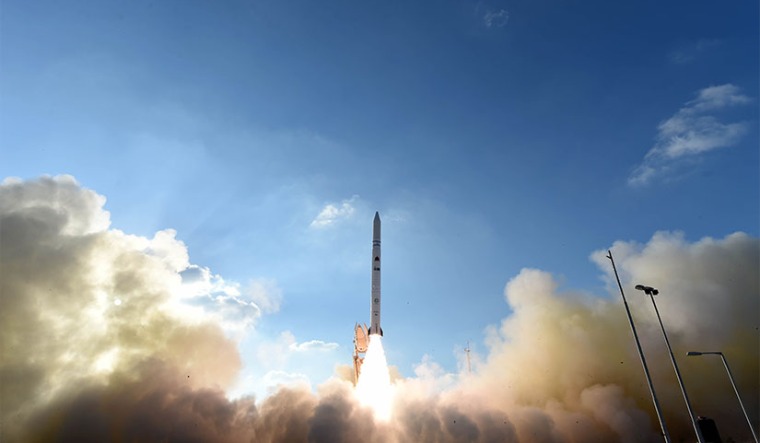When it comes to cooperation with their partners, even the sky is not the limit. Israel and the United Arab Emirates, which recently celebrated the first anniversary of the establishment of diplomatic ties, are soon going to ink a deal on space cooperation.
Both the Middle Eastern countries have space exploration ambitions. UAE, this year, succeeded in sending its probe, Hope, into Martian orbit. Israel, which is big on space applications, had, some years ago, sent its probe, Beresheet, to the moon. The probe, however, crash-landed on the lunar surface.
Speaking at an international press conference, Eliav Benjamin, Israel's head of the Bureau for Middle East and Peace Process, said that the country was seeking cooperation with its new partners across all spheres, from COVID assistance and safe travels to water and climate change cooperation. He said that they would take the relationship forward by gradually establishing strategic cooperation too.
Israel made a landmark move last year when it established diplomatic ties with many of its neighbours in the Middle East and North Africa. It began with the US-brokered treaty with the UAE. Subsequently, similar treaties have been forged with Morocco, Bahrain and Sudan, too. These are known as the Abraham Accords.
The year since the signing of the first treaty last September has been eventful. Donald Trump, who brokered the treaties, was replaced by Joe Biden in the US, Benjamin Netanyahu lost his prime minister’s chair in Israel. In the larger neighbourhood, Taliban took over Afghanistan as the US exited, changing the regional scenario majorly.
Back home, Israel got into one of its worst fights in recent times with the Hamas and battered Gaza with its weapons, even as several Hamas rockets breached Israel's fabled Iron Dome and claimed a few casualties. The two called off their fighting after international pressure, but it is an uneasy truce. Meanwhile, the pandemic raged on, hitting countries in wave after wave, even as vaccines made their arrival on the scene.
also read
- US students across Columbia, Standford varsities up in arms against Biden on Gaza war
- Israel’s military intelligence chief resigns ‘taking responsibility’ over Hamas attack
- Amid raging wars, the world spent $2,443 bn in 2023 on military expenses
- Gaza war: In Rafa, doctors save baby from womb of mother killed in Israeli strike
Despite all these tumultuous changes, Israel says it is clear in its view on taking forward its relations with its neighbours. Eliav Benjamin said there were few times in the country's history where all parties were of one opinion on a matter, and establishing relationships in the region was one of them. There is talk that many other countries may join in, too, with Israel. However, there are no confirmations yet. Oman has some level of engagement with Israel, but hasn't taken forward the relationship.
“We would want to have ties with every country in the region; however, we have to be sensitive to the internal developments in each country,” said Eliav Benjamin, noting that change of regimes and elections could delay such treaties. He noted that even critics have eventually turned around to accept that such diplomatic relations provide immense opportunities for everyone involved, as it allows easy travel, business and commerce, and an exchange at the people-to-people level.
Israel's bonhomie with others, and strained ties with its closest neighbour, the Palestinian state, is ironical. Eliav Benjamin, however, said that the diplomatic outreaches were not intended to be at the expense of anyone else, including Palestine. He said there was opportunity for the Palestinians, too, to join in the pact.





